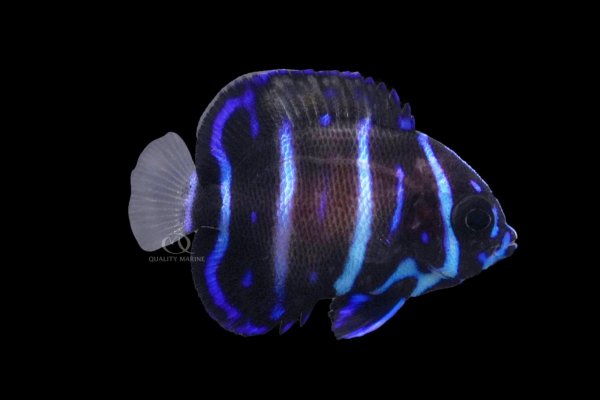As of right now, the vast majority of all Angelfish in aquariums are still wild caught, and this includes the Majestic Angels. They are a species with excellent wild reproduction, over a diverse wild range and sustainable harvest for aquarium keeping has been happening for decades. With all that being said, more stunning advancements from the biologists and friends at Bali Aquarich, we're proud to be able to offer you aquacultured specimens as well! Bali Aquarich is (predictably) located in Bali, where they have a more than 430,000 square foot facility. They breed more than 30 species of marine fish there, both for food and for ornamental marine markets.
All the angels in the genus Pomacanthus are grazers, nibbling on nearly everything in their path as they swim along. While they seem to mostly consume sponges and tunicates, a vital part of their diet is also the wide variety of small invertebrates living on and in those sponges. This diet and habitat means they are usually found in relatively shallow water, from 10 feet down to about 100. They're usually around protected reefs with an abundance of sponge and coral growth. An important aspect of keeping any Pomacanthus is a well-rounded diet. Here we feed them a variety frozen meaty food from Gamma, including their Vegetarian Diet product. They also get Nutramar's Algae and Color Boost/Complete formula in both Pellets and Shots. This offers a wide spectrum of nutrients and minerals that the Angels might otherwise lack, the Shots have the added benefit of being able to stick them to glass or rocks for the Angels to graze on! A word of caution in feeding is that internet abounds with advice to feed Angel's things like spinach and lettuce. Avoid all land-based plants when feeding your Magestic Angels. If you'd like to feed them something to pick on, we suggest Nutramar Ogo or Nori. Click here to learn more

All the angels in the genus Pomacanthus are grazers, nibbling on nearly everything in their path as they swim along. While they seem to mostly consume sponges and tunicates, a vital part of their diet is also the wide variety of small invertebrates living on and in those sponges. This diet and habitat means they are usually found in relatively shallow water, from 10 feet down to about 100. They're usually around protected reefs with an abundance of sponge and coral growth. An important aspect of keeping any Pomacanthus is a well-rounded diet. Here we feed them a variety frozen meaty food from Gamma, including their Vegetarian Diet product. They also get Nutramar's Algae and Color Boost/Complete formula in both Pellets and Shots. This offers a wide spectrum of nutrients and minerals that the Angels might otherwise lack, the Shots have the added benefit of being able to stick them to glass or rocks for the Angels to graze on! A word of caution in feeding is that internet abounds with advice to feed Angel's things like spinach and lettuce. Avoid all land-based plants when feeding your Magestic Angels. If you'd like to feed them something to pick on, we suggest Nutramar Ogo or Nori. Click here to learn more












